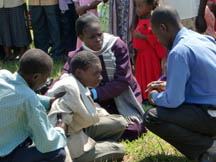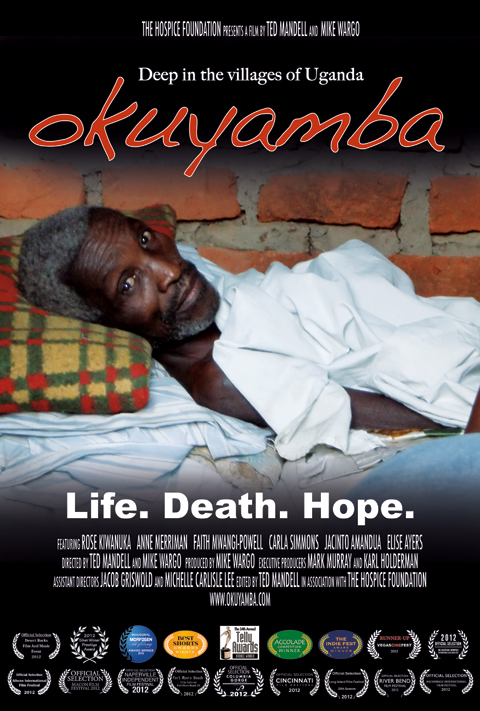About
Every day, nearly 7,000 people die from HIV/AIDS in sub-Saharan Africa. More than 35,000,000 women, children, and men in sub-Saharan Africa have already died of AIDS. In many African countries, there is little or no access to adequate pain medication, little or no access to hospice and palliative care, and desperate situations of suffering, poverty, and isolation.
 Like nearly all Subsaharan African countries, Uganda faces enormous challenges in providing even the most basic palliative care. It is an undisputed fact that the availability of healthcare in Uganda is very low and the majority of Ugandans go their entire lifetime without ever seeing a physician. For those living in the rural areas of Uganda, there is one doctor for every 50,000 people. Consequently, nurses assume a major role in health care. There is a high incidence of HIV/AIDS and cancer with limited facilities for treatment. Once a Ugandan contracts cancer or other life-limiting illnesses, they are frequently left with little or no opportunity to pursue curative treatments. By way of example, in the entire country of Uganda there is only one radiation center for the treatment of cancer. Those fortunate enough to be able to travel to Kampala for radiation must deal with the fact that the machine is often broken down, or there may be frequent and often prolonged disruption of electrical power. Many lack the financial resources or the means to travel at all. Consequently, the mortality rate, and corresponding need for palliative care, is very high. All of these facts help account for Uganda’s low adult life expectancy of 52 years, and why half of the country’s 33 million people are under the age of 15.
Like nearly all Subsaharan African countries, Uganda faces enormous challenges in providing even the most basic palliative care. It is an undisputed fact that the availability of healthcare in Uganda is very low and the majority of Ugandans go their entire lifetime without ever seeing a physician. For those living in the rural areas of Uganda, there is one doctor for every 50,000 people. Consequently, nurses assume a major role in health care. There is a high incidence of HIV/AIDS and cancer with limited facilities for treatment. Once a Ugandan contracts cancer or other life-limiting illnesses, they are frequently left with little or no opportunity to pursue curative treatments. By way of example, in the entire country of Uganda there is only one radiation center for the treatment of cancer. Those fortunate enough to be able to travel to Kampala for radiation must deal with the fact that the machine is often broken down, or there may be frequent and often prolonged disruption of electrical power. Many lack the financial resources or the means to travel at all. Consequently, the mortality rate, and corresponding need for palliative care, is very high. All of these facts help account for Uganda’s low adult life expectancy of 52 years, and why half of the country’s 33 million people are under the age of 15.
Despite these seemingly monumental issues, the Palliative Care Association of Uganda is a vibrant and active presence in the country, due largely to the leadership, energy, and devotion of its National Coordinator, Rose Kiwanuka, who was the country's first palliative care nurse, and who is responsible for the vision of “Palliative Care for all in Uganda.” Travels throughout the country confirm the acute need for care, but also the overwhelming appreciation of those who receive care. Among the country's 120 trained palliative care workers, there is a sense of immeasurable pride in what they are doing and accomplishing, one step at a time. Yet, such challenges bring opportunities. The pride with which health care workers carry out their day-to-day tasks, laboring with few resources, traveling great distances over rugged roads to reach just one person – and knowing the overwhelming numbers of individuals needing help – is an inspiration to behold.


.jpg)


